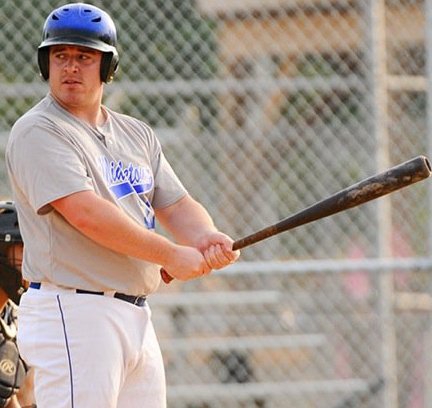 Often in sport the term ‘pressure‘ is used to describe a close/tight match situation or one of importance to the individual. Pressure has been defined as “any factor or combination of factors that increases the importance of performing well on a particular occasion” by Baumeister (1984). This definition for me highlights the importance of athlete perception. How the athlete perceives the occasion and factors surrounding them will affect the importance of performing, highlighted by Baumeister (1984).
Often in sport the term ‘pressure‘ is used to describe a close/tight match situation or one of importance to the individual. Pressure has been defined as “any factor or combination of factors that increases the importance of performing well on a particular occasion” by Baumeister (1984). This definition for me highlights the importance of athlete perception. How the athlete perceives the occasion and factors surrounding them will affect the importance of performing, highlighted by Baumeister (1984).
When discussing pressure in sport the term ‘choking’ and anxiety will appear soon after. Choking is defined as “performing more poorly than excepted given one’s skill level” (Beilock & Carr, 2001); this tents to occur in what is deemed a pressure situation. Increases in anxiety can lead to ‘choking’ and many reappear around similar situations in the future. However it should be noted that small amounts of anxiety is natural and can be good, but increased levels of anxiety can led to poor skill execution. Both anxiety and choking are results of pressure; therefore if the athlete changes their perception of the situation they reduce the likelihood of ‘choking’ and or increased levels of anxiety.
I have a few questions to challenge pressure in sport, especially at the elite end:
1. Haven’t athletes spent years training for these moments?
2. Haven’t they been replicating these moments over and over again?
3. Do they trust their ability and preparations?
Former Australian Cricket Coach John Buchanan (1999 – 2007) wrote in his book ‘If Better Is Possible’ a chapter titled Pressure is a myth. Prior to reading this chapter I was of a view that ‘pressure’ was a huge factor in sporting performance, however post reading this chapter my opinion has some what changed on ‘pressure’. John Buchanan’s record as an international coach is remarkable, two undefeated World Cups (out of 2), and 16 wins in a row in Test matches just to mention two.
This notion of ‘pressure is a myth’ can be used more as a team mantra and as a mindset. You may experience challenges to this both from your own experience of that of others and that is fine, think about this notion and make your opinion.
This notion should be used to challenge your athletes perception of pressure, this may be on a more philosophical level than athletes have previously worked, but will develop their understanding of themselves and there sport. Pritchard (2008) a martial artist and author suggested a similar view of pressure. His suggestion is for people to view pressure as ‘an opportunity not a threat’, in his book The Warrior Mind. Highlighting the ‘threat’ element is key here, as our natural reactions to threats are to escape them or fight them (Flight or Fight). If you view pressure situations as an opportunity this would reduce the natural reactions that come with a threat.
Two key components to achieving this mindset in your athletes: Preparation and Trust (Buchanan, 2008).
Preparation – If you prepare for situations that you may incur during performance, this preparation will help your athletes adapt to the situations and feel more comfortable with them. Also the use of imagery can help replicate possible scenarios to enhance ‘familiarity’ with the situation. The more familiar we are in situations the more comfortable we are, this leads to lower levels of anxiety and reduced likelihood of choking.
Trust – Next step is to trust your preparation and ability to deal with/ execute the prepared plans. Recognizing that you have planned for this situation and have performed under the situation before.
These two simply tips along with the mindset of ‘pressure is a myth’ in difficult situations and view them as an opportunity to succeed.
As a researcher and training sport psychologist I recognize there are varying degrees of pressure in sport, but feel that the media often use the term ‘pressure’ as an excuse for poor execution and on occasion athletes have used this term as well.
I hope you find this useful any questions feel free to contact me via twitter @adamkellypsych or my blog
Adam Kelly


























Hi there,
Do you have the full references? I’m using your article for an essay of mine and there are some references that I need to use